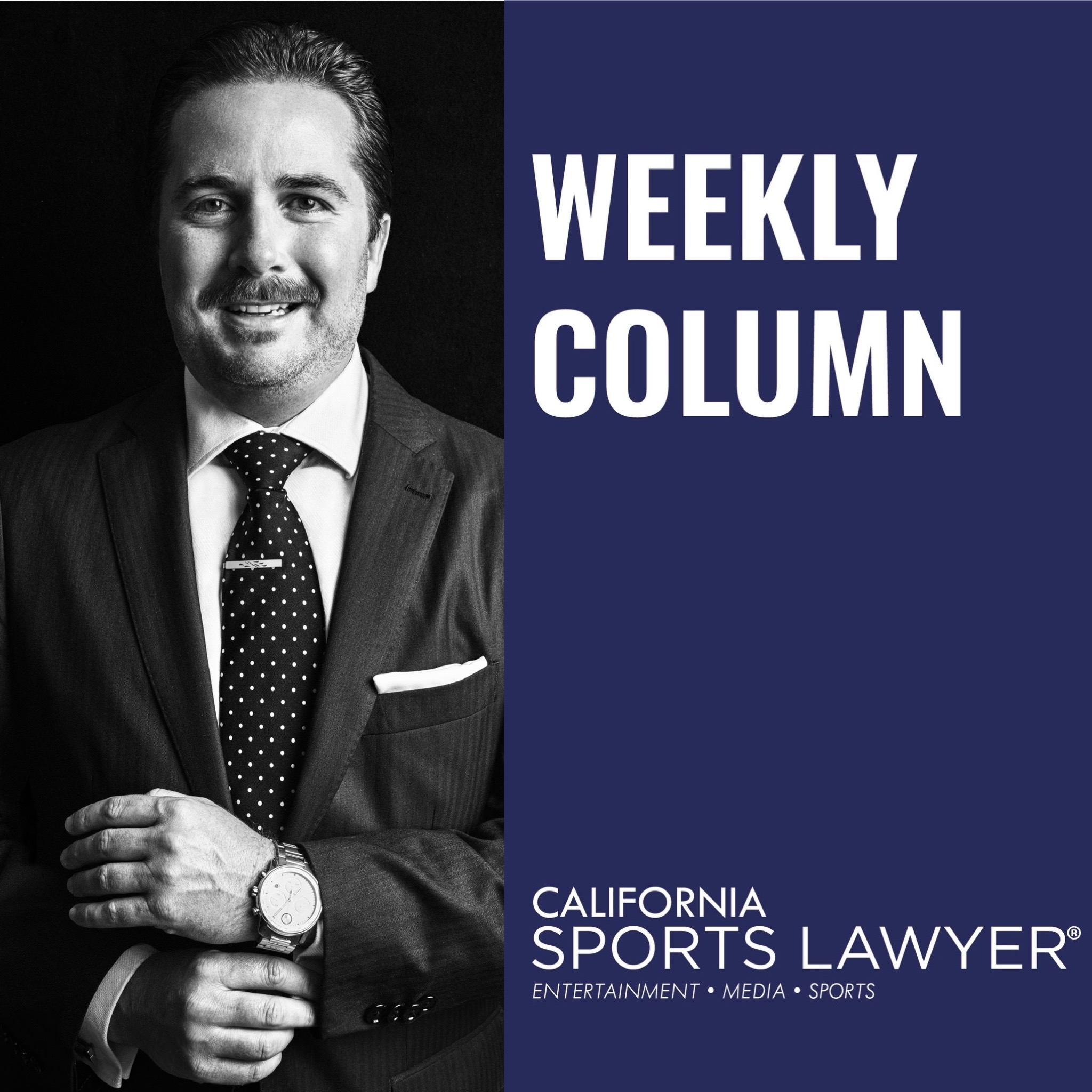California Sports Lawyer® Founder and Managing Attorney Jeremy M. Evans column about the importance of securing name, image, and likeness (NIL) rights in deals and the role that representation can and should play.
You can read the full column below. (Past columns can be found, here).
~
Talent almost always wins the day and the paycheck. Meaning, no matter the marketing, advertising, and negotiating, talent that performs will get paid and be successful. Where representation can have an impact is in the contract details, terms, conditions, and whether to play for one such team or another. The situation is the same in entertainment except that packaging has a much larger impact in entertainment film and television than it does in building a roster for a sports team. Packaging is one of the major benefits of a large talent agency in entertainment.
The bonds in relationships with friends and family can be similar with clients. Meaning, in certain industries clients can become close confidants with a level of trust built over deals and many years. A trusted representative can be like one of the last scenes in the film Jerry Maguire where one player sees another player (Rod Tidwell played by Cuba Gooding Jr.) hug his agent (Jerry Maguire played by Tom Cruise) with emotion and love, e.g., or “Quan” as stated in the movie.
There is another caveat to representation relationships and it has to do with the players associations. Player agents do not have an association, guild, or union, but their clients do have such collective bargaining power through the players associations. The players associations in the big five American sports (NBA, NFL, NHL, MLB, and MLS) all have collective bargaining rights that secure certain deals and terms for the players. Practically, this means that name, image, and likeness (NIL) rights and decisions about how and where the season is displayed, shared, and played is determined collectively.
It should come as no surprise that the power struggle to secure and monetize player NIL is occurring in professional and collegiate sports. NIL is at the forefront of every major decision and dispute in sports and entertainment today. Once television, streaming, and related rights are secured, the next pot of gold is in NIL. NIL is at the foundation of the battle between the NCAA, universities, student-athletes, and sponsors through the House settlement. It is also at the center of the battle between the newly formed Professional Tennis Players Association (PTPA), Fanatics trading cards and memorabilia lawsuit defense against Panini, and the Major League Baseball Player’s Association (MLBPA) lawsuit against DraftKings.
What the players, studios, artists, talent, teams, and universities should realize sooner rather than later is that securing NIL rights and getting paid is becoming just as important in a social media and YouTube world as other rights. Clearly television and streaming bring in more dollars, but their influence is second to what occurs on social media and other forms of media. The highlight and opinion world is getting stronger—although there is a counterculture forming that is focused less on social media consumption and opinions. Representation can play a major role in securing NIL rights and deals, but the terms and conditions are dependent on the talent on and off the field.
~
About Jeremy M. Evans:
Jeremy M. Evans is the Chief Entrepreneur Officer, Founder & Managing Attorney at California Sports Lawyer®, representing entertainment, media, and sports clients in contractual, intellectual property, and dealmaking matters. Evans is an award-winning attorney and industry leader based in Los Angeles and Newport Beach, California. He can be reached at Jeremy@CSLlegal.com. www.CSLlegal.com.
Copyright © 2025. California Sports Lawyer®. All Rights Reserved.





